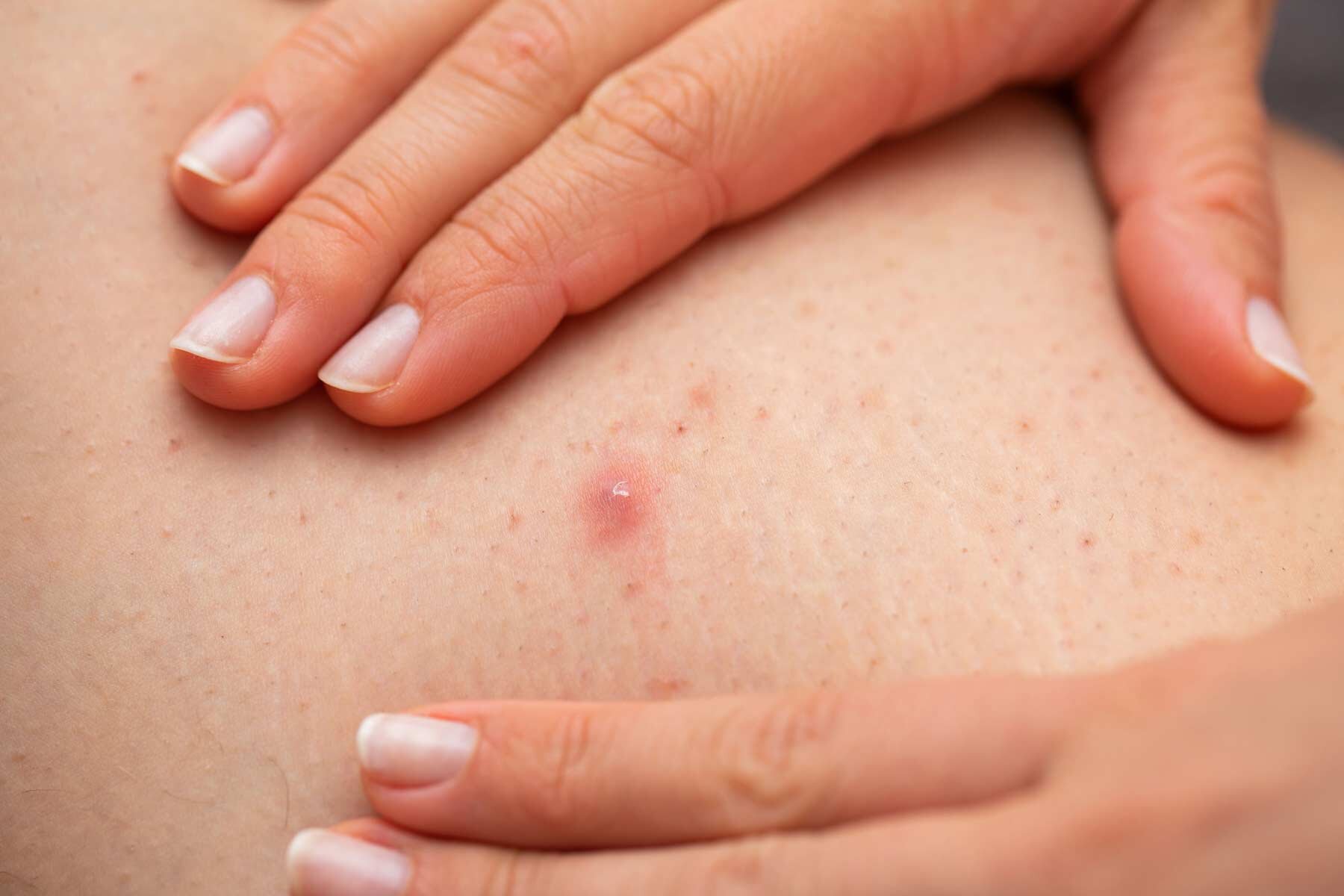
Key facts
- Folliculitis is an inflammation of the hair follicles in your skin.
- Folliculitis causes painful red bumps each with a hair in the middle.
- Treatment of folliculitis depends on its cause.
What is folliculitis?
Folliculitis is an inflammation of the hair follicles in your skin.
There are 2 types of folliculitis:
- non-infective folliculitis
- infective folliculitis
What are the symptoms of folliculitis?
Folliculitis causes painful red bumps each with a hair in the middle. These can become itchy or sore, and there may be pus.
It can happen anywhere on your body where there ‘s hair. If an infection is more severe or deeper under the skin, you may feel feverish or unwell, but this is rare.
What causes folliculitis?
Folliculitis often appears in sweaty areas or around the beard area in men. It is more likely to happen if you wear tight clothing.
Causes of non-infective folliculitis
Non-infective folliculitis can be caused by:
- shaving and waxing
- obesity
- heavy sweating
Some medicines can also cause folliculitis, such as:
- corticosteroids — especially in the form of creams and ointments used on the skin
- extended use of antibiotics (which can cause gram negative folliculitis)
- medicines that suppress the immune system
People who shave may get a chronic (ongoing) inflammation in their beard area. As the hair grows, the cut end digs into the skin causing inflammation. This is called pseudofolliculitis barbae. It most often affects men with darker skin and tightly curled hair.
Another type of folliculitis is eosinophilic folliculitis. In some cases, it may start due to immune suppression (your immune system not working properly).
Causes of infective folliculitis
Infective folliculitis can be caused by:
- bacteria
- viruses
- fungi
The most common bacteria that cause folliculitis are:
- staphylococcus aureus (bacterial folliculitis) —commonly found on your skin
- pseudomonas aeruginosa (hot tub folliculitis) — found in hot tubs and spas
Other causes of infective folliculitis are:
- demodex mites
- malassezia yeasts (pityrosporum folliculitis)
- herpes simplex virus
When should I see my doctor?
If you think you might have folliculitis, see a doctor.
How is folliculitis diagnosed?
Your doctor will take your medical history and examine you. If they suspect that you have infective folliculitis, they will take a swab for testing.
They may refer you to a dermatologist (skin specialist). Some people may need a skin biopsy.
How is folliculitis treated?
Treatment of folliculitis depends on its cause. Some general measures you can try are:
- Try to keep your skin cool and free of sweat, friction and constriction.
- Wear loose cotton clothing.
- Choose oil-free skin products.
- When you use ointment, rub it into the skin in the direction of the hair follicles.
Treatment for non-infective folliculitis
If you have non-infective folliculitis, your doctor may suggest:
- a warm compress
- antiseptic washes
- using a sharp razor when shaving
Most cases of folliculitis are non-infective and will settle down with time and the above measures.
If you have folliculitis from shaving, try:
- taking a break from shaving — this can help it settle down
- using plenty of gel (not soap) when shaving
- not to shave against the grain
Treatment for infective folliculitis
If you have infective folliculitis your treatment will depend on the cause of the condition.
Infective folliculitis might need to be treated with antibiotic ointment or tablets.
Can folliculitis be prevented?
You can help prevent folliculitis by:
- Keeping your skin clean and dry — wearing breathable clothing and changing wet or sweaty clothes promptly.
- Avoiding irritating your skin.
- Choosing skin products that don ‘t clog your pores.
Complications of folliculitis
Some cases of folliculitis can be deeper in the skin and cause boils, which might need treatment with a minor surgical procedure.
Severe cases of folliculitis may cause scarring and rarely, bald patches.

